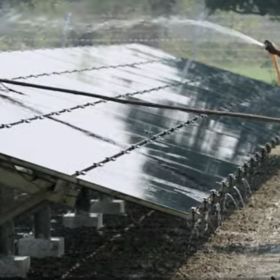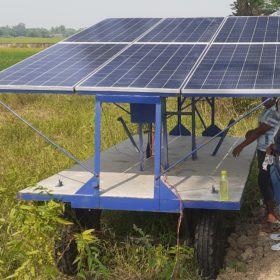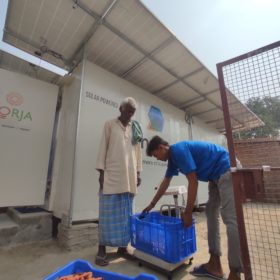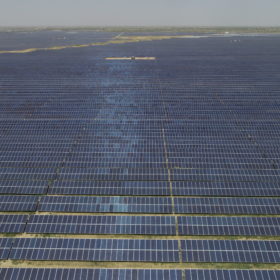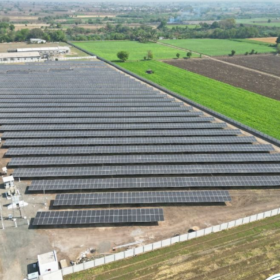India installed 3.2GW of solar in Q4 2021
The nation’s cumulative solar capacity surpassed 50GW by the end of December last year.
Goldi Solar to solarize an entire village in Gujarat
The Gujarat-based solar panel manufacturer and EPC services provider has been chosen by Shree Ramkrishna Knowledge Foundation to set up 450kW of solar rooftop projects to power around 350 houses and public areas in the village of Dudhala.
Husk Power Systems secures largest-ever debt finance for solar microgrids in rural India
The Bihar-based rural clean energy services provider has received US$4 million from India Renewable Energy Development Agency (IREDA) to construct 140 microgrids in the states of Uttar Pradesh and Bihar.
Mobile solar pumping system deployed in remote areas
Researchers at the Indian Institute of Technology Bhubaneswar have developed a solar power system that can be easily moved between farms to pump water for irrigation. The kit comprises solar panels and an inverter to power a surface-mounted pump.
MNRE notifies framework for promotion of distributed renewable energy-based livelihood applications
The framework will guide the state-level and central government ministries and other stakeholders in formulating schemes and programs for the promotion of distributed renewable energy-based livelihood applications.
Portable, space-saving solar towers
Researchers at the Indian Institute of Technology Delhi have developed solar towers that can be moved from one place to another and can generate 20-30% more power while requiring only 50-60% space compared to conventional mounting setups.
New renewable energy capacity addition grew 73% year-on-year in the third quarter this fiscal
India installed 3,316 MW of non-hydro renewable energy capacity in the third quarter of FY2021-22, compared to just 1,914 MW installed in the same period last year. Out of this, 93% (3,072 MW) came from solar.
Tapping the off-grid solar market in India
Ashutosh Verma, founder of solar appliance manufacturing company Exalta India, says the key to increasing the uptake of solar products in rural areas lies in improving the access to finance, infrastructure to retain the technology, and awareness on usage.
Solar water pumps redefining farmers’ lives
With solar water pumps, farmers have access to high-quality power available for irrigation. These systems are portable and can be assembled at any preferred location. With the growing utilization of these systems, the costs have decreased substantially, making them an efficient, convenient, and cost-effective solution for grid-isolated rural areas.
India has installed more than 49.3GW of solar
The nation reached a cumulative 151GW of renewable energy generation capacity – including large hydro – by December 31, although a large volume of off-grid equipment is not included in that figure.


